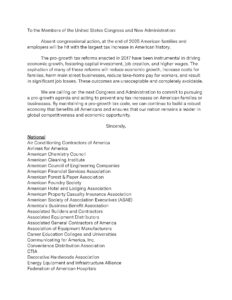Common Business Deductions for America’s Independent Producers Are Not Subsidies
Deducting Business Expenses and Receiving Subsidies are Different. Generally, the U.S. Code taxes businesses on net income. Businesses, across sectors of the economy, are taxed on earnings after the costs of doing business (expenses) are deducted. Conversely, subsidies are either targeted reductions of taxes owed or direct payments from the government.
Expensing Drilling Costs. Independent producers may immediately deduct intangible drilling costs (IDCs) associated with developing natural gas and oil that have no salvage value – a provision in the tax code since 1913. IDCs are 65 to 90 percent of the capital expenditures of independent producers. Eliminating IDCs will decrease American jobs and energy production.
Percentage Depletion. All mineral natural resources are eligible for a percentage depletion income tax deduction to reflect the decreasing value of the resource as it is produced. Percentage Depletion allows independent producers to reinvest cash into the expenses of existing wells and redeploy capital to drill new wells. This deduction is highly limited and only applies to smaller independent producers and to royalty owners. These taxpayers – who typically file as individuals – should not be penalized through tax reforms that will result in the loss of these important American natural resource assets.
Passive Loss Exception for Working Interests. The tax code enables working interest owners in oil and natural gas production to achieve some parity between their investments and those of corporate shareholders. Counting any working interest investment losses as active instead of passive allows individual investors to treat the normal business deductions from their investment in the same way as corporations. If tax reform retains the active-passive distinctions, this exception should be continued.




